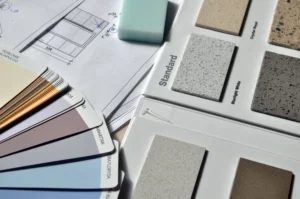Everyone’s dream: I will Get THE Best Mortgage Rate!
And rightfully so, who doesn’t like to save some money. I mean A LOT OF IT!
You must to learn what you are getting yourself into, so you make the best decision.
We are here to help.
Let’s get inform about home financing, including mortgage tips on how to get the best mortgage rates throughout your home buying process.
1. Boost Your Credit Score
Your credit score is one of the most significant factors that lenders consider when determining your mortgage rate. It’s an indicator of your creditworthiness and shows how likely you are to repay your loan. If your credit score is high, you’ll have a better chance of getting approved for a mortgage and receiving a lower interest rate. As CNBC reported, affordability remains to be a buyers’ biggest challenge. Having a good credit score can help offset money issues especially if you’re having difficulty gathering your necessary funds.
To improve your credit score, pay all bills on time, keep credit card balances low, and avoid opening new credit accounts. Review your credit report to ensure there are no errors that could be hurting your score.
2. Save for a Larger Down Payment
Saving for a larger down payment is another way to secure a better mortgage rate. The more money you can put down upfront, the less you’ll have to borrow, and the lower your interest rate will be. Additionally, a larger down payment can make you a more desirable borrower to lenders, showing that you’re financially responsible and have the ability to save.
3. Shop Around and Compare Rates
Don’t settle for the first mortgage rate you’re offered. Take the time to shop around and compare rates from different lenders. Start by contacting banks, credit unions, and mortgage brokers to get quotes on various loan options. Compare the interest rate, closing costs, and fees associated with each loan. Don’t be afraid to negotiate or ask for a better rate if you think you can get one.
4. Consider Different Types of Loans
There are various mortgage loans available, each with its pros and cons. Some of the most common options include fixed-rate mortgages, adjustable-rate mortgages, and government-backed loans like FHA and VA loans. Each type of loan has different requirements and interest rates, so it’s vital to understand the differences and choose the one that best suits your situation.
5. Work with a Mortgage Professional
Finally, consider working with a mortgage professional who can guide you through the home financing process and help you find the best mortgage rates. A mortgage broker can help you compare rates from different lenders, while a loan officer at a bank or credit union can help you understand different types of loans and choose the best one for you. Working with a professional can also help you avoid costly mistakes and ensure that you’re getting the best possible deal.
6. Invest in Discount Points to Reduce Your Mortgage Rate
If you have sufficient funds, paying discount points at closing may help reduce your mortgage rate. Each point paid to the lender costs 1% of the total loan amount and can lower your interest rate by around 0.25%. While paying discount points can be costly, it can help save money in the long term, especially if you plan to stay in your home for an extended period.
7. Maintain a Consistent Income and Stable Employment
Lenders are more likely to prefer borrowers with a consistent employment history and a dependable source of income. It is advisable to maintain steady employment and income for at least two years before applying for a mortgage. Frequent job changes or starting a new business may negatively impact your creditworthiness, which could result in higher interest rates or loan denials.
8. Evaluate Refinancing Options
You can still secure a lower mortgage rate through refinancing even after obtaining a mortgage. Refinancing involves replacing your current mortgage with a new one with a lower interest rate. This can be a wise financial decision if interest rates have decreased since you first took out your mortgage, or if you’ve improved your credit score or financial situation. Before deciding to refinance, consider the costs and benefits associated with refinancing, which may include closing costs and fees.
In conclusion, obtaining the best mortgage rate requires careful consideration of various factors, including credit score, debt-to-income ratio, down payment, and loan type. By improving your credit score, reducing your debt, saving for a higher down payment, and comparing different loan types, you can increase your chances of securing the best possible mortgage rate.
Additionally, investing in discount points, maintaining a consistent income and stable employment, and evaluating refinancing options can also help reduce your interest rate and save you money over the life of your loan.
Overall, when it comes to home financing, it’s essential to do your research and consult with a mortgage expert. Following these mortgage tips and taking the time to weigh your options carefully will increase your chances of securing the most favorable mortgage rate. The home buying process may be tedious, but with the right approach that meets your financial goals and needs, you can make it happen.
Metadescription:
Related posts:
 Reduce Your Environmental Footprint: Simple Water Conservation Tips for Your Home
Reduce Your Environmental Footprint: Simple Water Conservation Tips for Your Home
 The Power Of Home Renovation On Your Mental Health
The Power Of Home Renovation On Your Mental Health
 Roof Collapse at Florida School Blamed on Construction Material, Officials Report
Roof Collapse at Florida School Blamed on Construction Material, Officials Report
 Europe’s Housing Market Squeezed Amidst Cost-of-Living Crisis
Europe’s Housing Market Squeezed Amidst Cost-of-Living Crisis
 Increase in US Home Construction in 2023 Signals Robust Market Recovery
Increase in US Home Construction in 2023 Signals Robust Market Recovery



